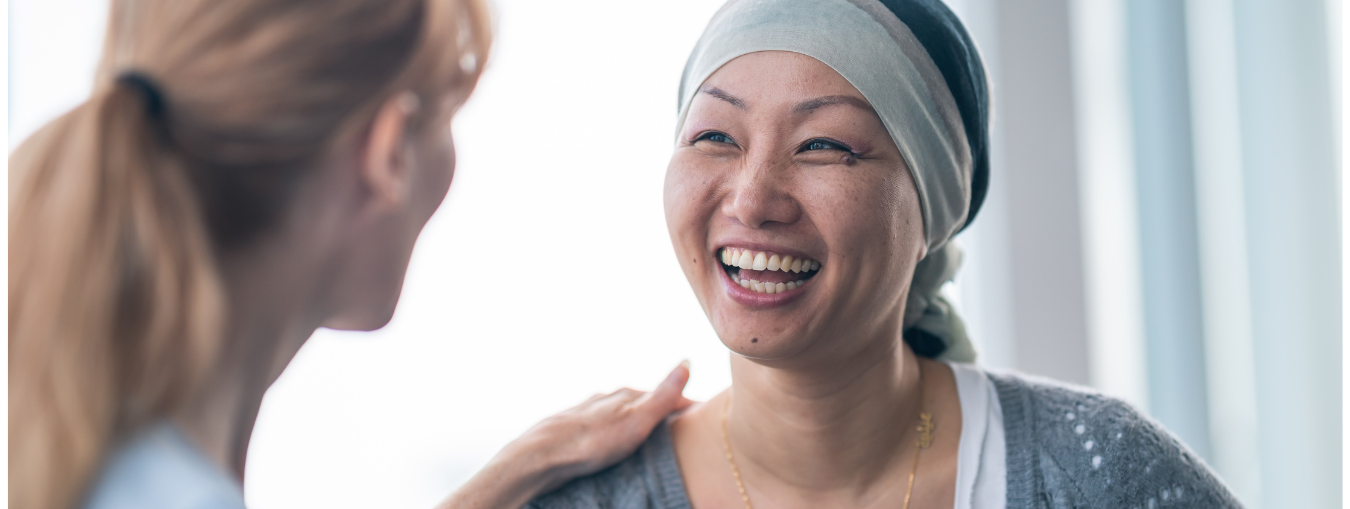By Sam Catherall – Exercise Physiologist
If you or a loved one has been diagnosed with cancer, rest is an integral part of your recovery. Although, ensuring the participation in physical activity should be high up the priority list.
Cancer and its associated treatments can lead to several unpleasant and debilitating side effects. Research in exercise and oncology shows that those who are physically active before, during and after treatment have shorter recovery times, less severe symptoms and can improve mood and stress levels1 than those who remain sedentary. For some cancers, exercise may improve how well you respond to treatment and reduce the likelihood of the cancer recurring.
The potential benefits of exercise during and after cancer treatment have been researched increasingly over the past several years. Exercising during chemotherapy has shown to ease side effects, including fatigue and nausea, and can help rebuild the immune system. Chemotherapy can leave individuals requiring extensive rest. Coupled with fatigue, nausea and decreased physical activity, this can contribute to muscle loss and the development of osteoporosis. Patients are encouraged to participate in as much exercise as they can tolerate, without exacerbating symptoms. Strength training can reduce the severity of sarcopenia (muscle loss), osteoporosis and osteoarthritis, cardiovascular disease and diabetes.
The Clinical Oncology Society of Australia’s position statement on exercise and cancer outlines that exercise should be an integral part of intervention for all cancer patients2. Exercise Physiologists are guided by the Exercise & Sports Science Australia guidelines to prescribe individualised programs to combat the effects of the disease and its treatments3. You can access the position statement here.
How active should I be?
Australia’s Physical Activity Guidelines recommend at least 150 minutes of moderately intensity aerobic exercise, plus at least 2 strength sessions per week.
An Exercise Physiologist can help determine what physical capacity you have, and how much exercise is recommended for you to safely perform.
- Patients who regularly exercised before treatment may find they need to exercise at a lower intensity to start, and that’s normal. It is important to start relatively slow and gradually build up over time. You may only start at 10 minutes a day. Do not be deterred, your exercise physiologist can help you build up over several weeks, not days!
- Activity pacing can ensure you do not over-exert yourself, requiring longer periods of rest.
- Patients receiving chemotherapy may experience fluctuating periods of sickness and fatigue throughout treatment cycles and require appropriate modifications to their exercise prescription.
- Throughout treatment, patient immune systems may be compromised. Avoiding public gyms, and other public places until your white blood cell count has returned is recommended.
What type of exercise or physical activity?
Generally, any movements that you enjoy, can tolerate, and will not exacerbate your symptoms should be completed regularly. You may start with some simple body weight exercises such as squats and calf raises. Try to walk each day. Physical Activity involves housework, gardening, or anything that raises your exertion above normal. On the other hand, exercise is any deliberate activity with the intention of improving function.
Exercise can be grouped into 3 main categories
- Aerobic exercise: Involves large muscle groups and causes a moderate rise in heart rate and breathing rate. Aerobic exercise increases your capacity to use oxygen as energy, which improves heart and lung function. Aerobic exercise is a great option to build general endurance, over time difficult tasks become easier. Aerobic exercise can decrease the side effects of anti-cancer therapy medications such as methotrexate.
- Strength Training: Involves making your muscles work harder than normal against resistance such as weights, bands or even your body weight. Also known as resistance training, it is great for increasing your strength, functionality, improving bone health and managing arthritis.
- Balance and flexibility: Involve challenging tasks to improve joint range of motion, proprioception and muscle length. This form of exercise is gentle and can help combat muscle soreness, rigidity and tightness, whilst also reducing risk of falls and fractures.
Your Support Team
Getting the right advice to navigate your diagnosis, treatment and recovery is crucial. Seeking the help of university qualified health professionals is recommended, as they know best how to get you moving in consideration to your induvial circumstances. Along with your Oncologist and GP these professionals may include the following:
For exercise support: Accredited Exercise Physiologist or Physiotherapist
For diet and nutritional support: Accredited Practicing Dietician
For mental health support: Registered Clinical Psychologist
Your GP will be able to arrange a Team Care Arrangement (TCA), which entitles you to 5 sessions from the above health care professionals during the calendar year. These sessions include a partial rebate from Medicare.
- https://www.cancerresearchuk.org/about-cancer/causes-of-cancer/physical-activity-and-cancer/what-are-the-benefits-of-exercise
- https://www.cosa.org.au/media/332488/cosa-position-statement-v4-web-final.pdf
- https://www.essa.org.au/Public/News_Room/Media_Releases1/2019/Position_statement_on_exercise_medicine_in_cancer_management_has_been_updated.aspx?WebsiteKey=b4460de9-2eb5-46f1-aeaa-3795ae70c687


